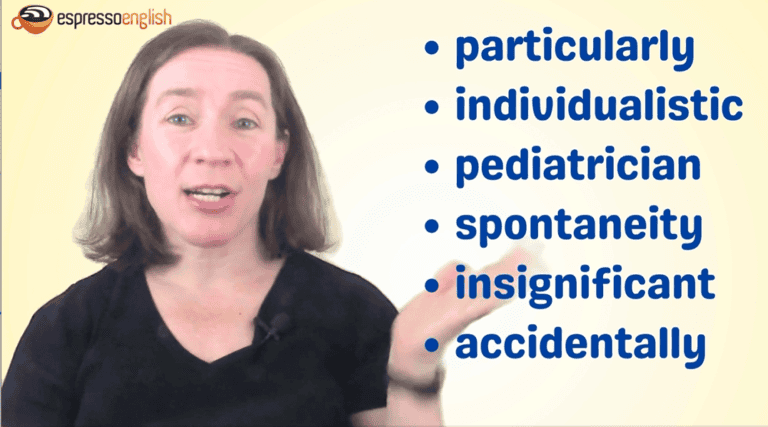Regular Verbs vs. Irregular Verbs
Regular verbs are ones that end in -ED in the past tense and past participle:
- walk – walked – walked
- start – started – missed
- miss – missed – missed
Irregular verbs are ones that don’t follow these rules, for example:
- do – did – done
- eat – ate – eaten
- sing – sang – sung

How to form regular verbs
Simply add -ED to make the past tense form of the verb, as well as the past participle:
- Present tense: ask/asks
- I often ask questions in English class.
- Past tense: asked
- I asked lots of questions yesterday.
- Past participle: asked
- I’ve never asked about that topic.
For verbs that already end in -E, we simply add -D to form the past tense and past participle. These are also considered regular:
- Present tense: love/loves
- I love pizza
- Past tense: loved
- I loved to go camping when I was a kid.
- Past participle: loved
- I’ve always loved classical music.
Other regular verbs ending in -E: use, vote, chase, bake, hope, smile, care, exercise, like, rescue, tie, waste, and many more
For verbs that end in consonant-Y, we change the Y to I and then add -ED:
- Present tense: try / tries
- I try to exercise almost every day.
- Past tense: tried
- I tried to fix the TV, but it didn’t work.
- Past participle: tried
- I haven’t tried that new restaurant yet.
Other regular verbs ending in consonant-Y: cry, spy, hurry, copy, reply, carry, marry, dry, study, identify
Note: For verbs ending in vowel-Y, we just add -ED: played, stayed, enjoyed
For verbs that end in a consonant + vowel + consonant, we double the final consonant before adding -ED:
- Present tense: stop / stops
- I should stop staying up so late.
- Past tense: stopped
- We stopped to get gas before our road trip.
- Past participle: stopped
- I’ve recently stopped smoking.
Other regular verbs ending in consonant-vowel-consonant: grab, rub, sob, skid, beg, drag, hug, occur, prefer, stir, admit, commit, regret, submit, control

How to pronounce regular verbs
Many English learners make pronunciation mistakes with the -ED ending. There are 3 ways to pronounce it:
- Like T
- Like ED (with an extra syllable)
- Like D
Let’s do some English pronunciation practice with examples!

American English Pronunciation Course
-ED pronounced like T
After regular verbs ending with a K sound
- asked
- checked
- kicked
- liked
- looked
- talked
- thanked
- walked
- worked
After regular verbs ending with an S sound
- confessed
- crossed
- dressed
- embarrassed
- guessed
- impressed
- increased
- missed
- passed
- promised
Remember that C in English can also have an S sound:
- announced
- danced
- forced
- influenced
- introduced
- noticed
- reduced
After regular verbs ending with an SH sound
- brushed
- crashed
- punished
- pushed
- rushed
After regular verbs ending with a CH sound
- matched
- punched
- reached
- searched
After regular verbs ending with an F / X sound
- laughed
- fixed
- relaxed
-ED pronounced like ED (with extra syllable)
After regular verbs ending with a T sound
- accepted
- appreciated
- cheated
- connected
- excited
- interrupted
- invented
- rejected
- started
- waited
After regular verbs ending with a D sound
- avoided
- decided
- ended
- expanded
- guarded
- included
- needed
- pretended
- reminded
- succeeded
-ED pronounced like D
After ALL other regular verbs that don’t fit into the first two categories
ap / pear –> ap / peared
(no extra syllable)
ac / cept –> ac / cep / ted
(the ED adds an extra syllable)
After regular verbs ending with an R sound
- appeared
- compared
- considered
- entered
- remembered
After regular verbs ending with a V sound
- arrived
- received
- observed
- improved
- saved
After regular verbs ending with a Z sound
- advised
- buzzed
- paused
- raised
- sneezed
After regular verbs ending with an L / M / N sound
- killed
- pulled
- traveled
- claimed
- jammed
- burned
- examined
- explained
- turned
- warned
Learn more: Canceled or cancelled? Traveled or travelled?
After regular verbs ending with a vowel sound
- borrowed
- annoyed
- cried
- glued
- carried
- weighed
After regular verbs ending with a B / G / J sound
- robbed
- scrubbed
- belonged
- hugged
- arranged
- encouraged
- challenged
- judged
- managed
Let’s review how to pronounce regular verbs ending in -ED:
-ED only adds an extra syllable when after a regular verb ending with T or D:
want –> wan / ted
(1 syllable –> 2 syllables)
de / cide –> de / ci / ded
(2 syllables –> 3 syllables)
In all other cases, it does not add an extra syllable:
miss –> missed (“misst”)
(1 syllable –> 1 syllable)
re / ceive –> re / ceived
(2 syllables –> 2 syllables)
Remember, the past participles of regular verbs are the same as the simple past tense: I receive, I received, I have received.
Now you know the difference between regular and irregular verbs in English, and the correct ways to pronounce the -ED ending in the simple past tense and past participle. Make sure to download the FREE lesson PDF and audio so that you can review and practice this lesson again!
More pronunciation practice:
More grammar:











